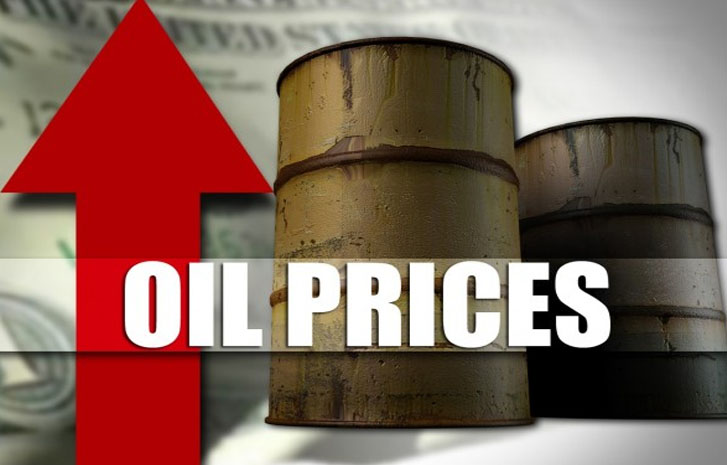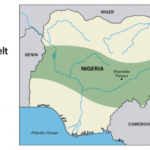The escalating war between Russia and Ukraine has sent oil prices to new highs, with the Bonny Light breaking the $100 per barrel resistance level on February 24 for the first time since 2014.
As the United States and European allies of Ukraine threaten to tighten sanctions on Russia, oil traders are concerned about the prospect of supply in a market where demand is rising rapidly, as factories and broader economies open up to recover from the doldrums of COVID-19 restrictions.
- The next APC national chairman and politics of the right choice
- Police arrest pastor over shooting of teenage girl
Like a tale of two halves, oil importers such as South Africa and Kenya are groaning as rising crude oil price sends the price of petrol, and by extension, other consumer good prices higher, escalating the current inflationary pressures in those countries.
However, members of the Organisation for Petroleum Exporting Countries (OPEC) seem to be excited about the bullish rally in oil price as it gives hope of higher fiscal revenue, which may help to partly bridge budget deficits.
Paradoxically, Nigeria may be worse off as higher oil prices mean more subsidy payments for the government. Unlike its OPEC peers, Nigeria imports all of its refined petroleum products, mainly through “opaque” transactions coordinated by the Nigerian National Petroleum Company (NNPC) Limited, which puts the country’s daily consumption of petrol at 93million litres during peak periods.
With President Muhammadu Buhari reversing an earlier decision to halt petrol subsidy for genuine or otherwise reasons, he had to send a supplementary budget to the National Assembly a fortnight ago, seeking an additional N2.55trillion provision for fuel subsidy at a time when the crude oil price was lower at $95 per barrel.
Contrary to the positive vibes amongst OPEC members, Nigeria seems to be a net loser in the oil price equation. First, oil production has been very weak, on an average of 1.6million barrels per day, a level below OPEC quota and far behind the 1.88mbpd benchmark in the 2022 budget. This reality reflects the poor investment in the sector over the past decade, a phenomenon that exacerbates the structural and communal issues of insecurity and theft, which continue to undermine the country’s oil output.
More importantly, the country’s shameful import of refined products exposes it to the vagaries of the volatile market, even as it paradoxically fixes the retail price of the imported refined products, a fiscal policy that means the government has to bear the burden of the higher crude oil price. No wonder the country’s external reserve has shrunk almost $1bn or 1.7 per cent year-to-date at a time when the oil price has rallied over 40 per cent. So, as oil price rises, Nigeria paradoxically counts its woes.
In OPEC peers where market and policies work to the benefit of the people, a situation where oil price is almost 70 per cent over the budget benchmark of $62 per barrel, the country should be accumulating savings in the excess crude oil account or the country’s Sovereign Wealth Fund in preparation for the inevitable rainy day. Unfortunately, this is not the reality in Nigeria as neither high nor low oil price is good for the country. So the question is: What, when and how can the country put its resources to good use?
For Nigeria, higher oil prices give her via the right hand but takes away, perhaps in a greater measure, from the left. With the country’s four oil refineries dead, Africa’s leading oil producer depends solely on imports for domestic supply of refined petroleum products, and since local retail pricing of petroleum products remains a combustible issue, higher prices mean that more budgetary allocations have to be made to meet state subsidy of local consumption, which many say is arguably inflated.
Beyond the woes of the fiscal burden from the subsidy, yield on Nigeria’s Eurobonds is rising fast as investors get concerned about the falling external reserves in a rising oil price environment. Notably, the yield on the 7.875 per cent US$1.5billion in February 2032 Eurobond, which has 10 years to maturity, has risen to 8.7 per cent, a notable 80 basis points rise from December 2021 levels, as the Notes trade at a huge discount to the 7.875 per cent yield at which it was issued. This reinforces the concern that Nigeria would have to pay more for any new borrowing in the international capital market, a phenomenon that would add to the current fiscal burden, where the country spends more than half of its revenue on debt service.
Perhaps there is good news as analysts at Vetiva Capital Management, a boutique investment bank in Lagos, believe oil price would take a breather in the second half of the year, with the oil research desk forecasting an average of $90 per barrel in the second half of the year.
For Dr Bongo Adi, a senior lecturer and economist at the Lagos Business School, “In the final analysis, Nigeria may be hard hit, and we may have to prepare for a rough time if the current spot price becomes a benchmark for the country’s imported refined products.”
He contends that there may be some relief in the crude-for-petrol swap arrangement as such transaction may cushion the impact of the rising oil price on the fiscal position of the country.
While commenting on the yield environment and the likely impact on Nigeria’s ability to fund the 2022 budget deficit, Abiola Rasaq, a financial analyst and former chief economist of the United Bank for Africa Plc said, “Nigeria would be able to access the international market for financing its budget deficit, but it needs to get the timing right to ensure effective pricing.
“Currently, sentiment is relatively weak on emerging markets, especially for economies such as Nigeria, where a few issues may have undermined investor sentiment. While the market is a bit choppy now and the volatile environment may not support new issuance, there is also the downside risk to investor appetite for the polity as the 2023 elections draw near; hence, getting the timing right would be very important, especially as the sovereign also serves as the benchmark for corporate issues.”

 Join Daily Trust WhatsApp Community For Quick Access To News and Happenings Around You.
Join Daily Trust WhatsApp Community For Quick Access To News and Happenings Around You.


